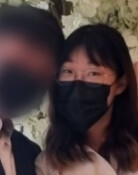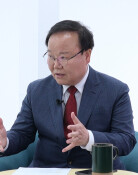Reinforced cooperation among S. Korea, Japan, and the U.S.
Reinforced cooperation among S. Korea, Japan, and the U.S.
Posted September. 20, 2016 07:20,
Updated September. 20, 2016 07:30
U.S. Secretary of State John Kerry said the U.S. remained deeply committed to its mutual defense obligations with Japan and South Korea in the Foreign Ministers talks with South Korea and Japan, held for the first time in six years since the North's 2010 attack on Yeonpyeong island. Kerry reiterated "steadfast" U.S. commitment to the defense of South Korea and Japan, "including the commitment to provide extended deterrence, backed by the full range of its nuclear and conventional defense capabilities,” making clear that the U.S. will defend South Korea and Japan equivalent to the level of its mainland, mobilizing all its nuclear and conventional weapons.
Kerry's comments to include nuclear weapons as a tool for extended deterrence seems to be intended to allay South Korea’s movement to redevelop strategic nuclear weapons and independent nuclear armament. However, it still seems legitimate for South Korea to seriously consider redeployment of strategic nuclear weapons as North Korea's nuclear warheads are becoming increasingly up to standard.
South Korean Foreign Minister Yoon Byung-se and his Japanese counterpart, Fumio Kishida, discussed further on reinforcing coordination with the U.S. and between the two. Kishida raised the need to establish a military information security agreement, which had failed to come to a conclusion in 2012 the last minute. The fact that Japan had sensed the signs of the fifth nuclear test provides South Korea a reason to proceed on the issue, overcoming the sentiments raising from history.
With the joint statement being released, the three-party security coordination system first suggested by Abe at the 50th anniversary of the diplomatic relationship between Korea and Japan in June last year and has constantly been called for by South Korean President Park Geun-hye through multiple phone calls with the U.S. and Japanese leaders since the January nuclear test, finally came to a launch. This is a legitimate measure when China still sides with North Korea while confronting South Korea regarding the THAAD deployment even after the fifth nuclear test. China has been playing charms to persuade the U.S. to ignore South Korea, the weakest link among its Asian allies, but rather fueled the strengthening of the three-party coordination system. The joint statement declared strong countermeasures but lacked more detailed ways to impose sanctions against the North beyond urging a complete obligation to the UNSC 2270 sanctions and independent sanctions from each nation.
It was revealed that Hongshang Industrial Development Corporation based in Dandong, China, has been selling resources for nuclear and missile development as well as a base for cyberattacks to the North, in violation of the obligations to impose sanctions against the nation. South Korea and Japan should continue to push the U.S. government to place a "secondary boycott" order against Chinese businesses and institutions that have partnerships with North Korea, as 19 U.S. senators urged U.S. President Barack Obama.
한기흥기자 eligius@donga.com
Headline News
- Med professors announce intention to leave hospitals starting Thursday
- Bridge honoring Sgt. Moon Jae-sik unveiled in Pennsylvania
- Chief of Staff Chung tells presidential secretaries to stay away from politics
- US FTC bans noncompete agreements
- N. Korea launches cyberattacks on S. Korea's defense companies







